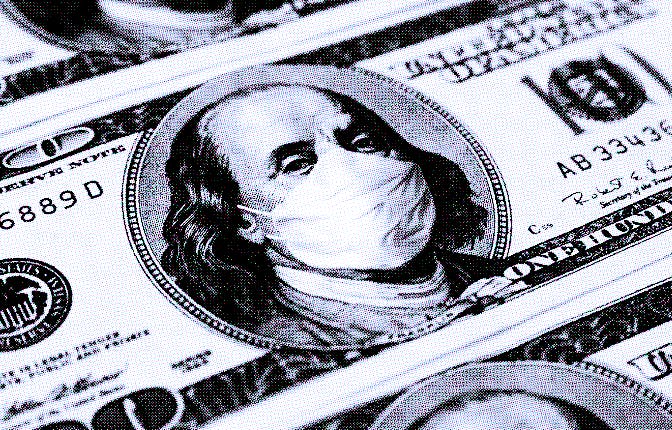Getting sick from COVID is about to get way more expensive
New insurance policies are leading to some staggering hospital bills.

If the possibility of contracting a dangerous respiratory illness won’t convince people to get vaccinated, maybe a dose of sticker shock will: A new study found that while most health insurance companies waived co-pays and other forms of cost sharing for people hospitalized with coronavirus in 2020, many stopped doing so in early 2021, as vaccines became more widely available. As a result, COVID patients could find themselves mired in thousands of dollars in medical bills, according to a Michigan Medicine press release.
Several insurance companies have pointed to the availability of vaccines to justify rolling back cost sharing waivers, Kao-Ping Chua, the study’s lead author and a health policy researcher and pediatrician at Michigan Medicine and the Susan B. Meister Child Health Evaluation Research Center, told Michigan Medicine. But some of those hospitalized for COVID might’ve had a severe breakthrough infection, for instance, or might be too young to qualify for vaccination. With transmission rates still high (which vaccine refusal isn’t exactly helping), they could end up with hefty bills, too.
The study, published yesterday in JAMA Network Open, combed through a repository of claims data from insurance companies across the country. Based on an analysis of more than 4,000 COVID-related hospitalizations of people with private and Medical Advantage insurance plans between March and September 2020, Chua and colleagues found that most patients didn’t need to pay for room-and-board changes and other hospital services, Michigan Medicine explained. This likely indicated that their insurance plans didn’t waive cost sharing for bills from hospitals.
But those who did end up paying for hospital services — which probably meant that their insurance plan didn’t have a cost-sharing waiver — paid thousands in out-of-pocket costs. Patients who had private insurance from their employers or that they’d bought themselves paid $3,840, while those with Medicare Advantage paid $1,536 out of pocket, on average. To put those numbers into perspective, a mere 39% of people in the U.S. can afford a $1,000 emergency expense, according to a recent Bankrate.com survey.
The number of people whose insurance plans lack these cost sharing waivers will probably only continue to rise. Chua and his team cited a Kaiser Family Foundation analysis, which found that 72% of the two largest private insurers in each state had stopped waiving cost sharing for COVID-19 hospitalizations as of this August. Many major Medicare Advantage insurers also let their cost sharing waivers expire, the researchers pointed out in their paper.
According to Michigan Medicine, Chua thinks that billing patients for COVID hospitalizations is misguided. “One of my main concerns is that the threat of high costs might cause some patients with severe COVID-19 to delay going to the hospital, increasing their risk of death,” he said in the press release. In order to avoid this scenario, policymakers could require insurers to waive the costs of hospitalization for COVID-19 for long as the pandemic persists, but Chua explained that he doubts this will happen amid all the rage directed at the unvaccinated for prolonging it.
If you learn nothing else from this study: Getting vaccinated protects you and others around you — not only physically, but financially, too.